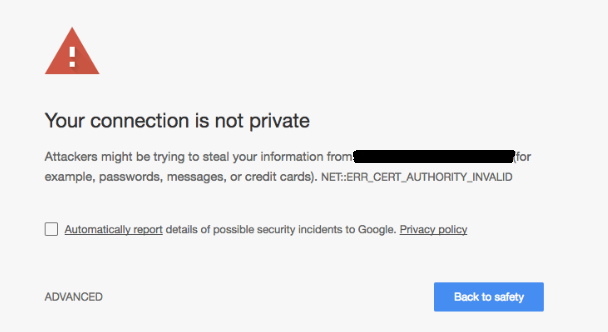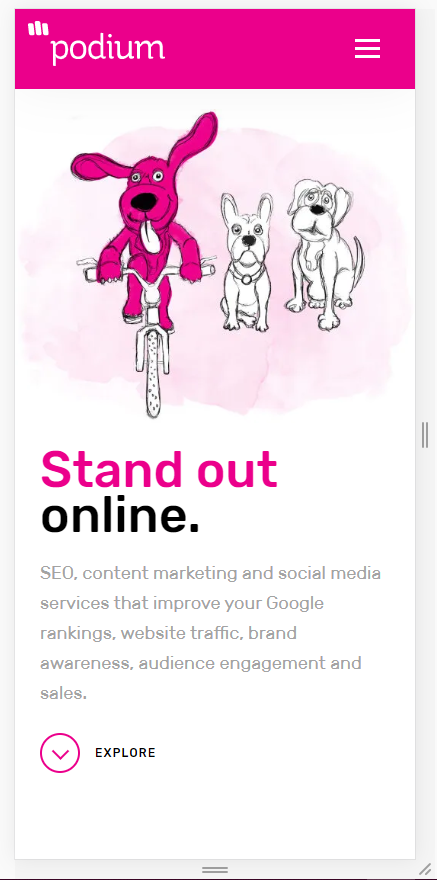Get on the Podium
Send us a message and let us know how we can help with your next project.
By Steve Maybury
Your website questions, answered! We found out which website-related questions are most commonly typed into Google – and here are our answers.
Because – you’ve guessed it – it’s not secure. For a long time, not having a secure website didn’t matter that much if you weren’t gathering users’ sensitive data, such as credit card card details. So being secure was incredibly important if you had a retail website, for example, but not so much for everyone else.
But that changed in 2017 when Google announced it would start to punish sites that were not secure: non-secure websites don’t rank as well on Google, and sometimes users will get a scary-looking warning when they try to access a non-secure site.
If your site is secure, then just to the left of the address bar you should see this – a locked padlock symbol and the address should start with https:// where the ‘s’ means ‘secure’.

Non-secure websites will display this:
And visitors might even get a warning that looks like this:

Not what you want potential customers to be seeing.
Making your site secure is a relatively quick, simple process and shouldn’t cost that much. You can follow our guide here, or speak to us if you’re not sure.
There are lots of possible reasons for a slow-loading website, but it is an important issue to resolve because it can affect your Google rankings – or just make people give up and go to another site if it’s loading too slowly.
Assuming the user has got a reasonably quick internet connection, other reasons for a slow-loading website can include too many plug-ins, images not being optimised correctly, badly-written code, or, simply, being held on a slow or outdated server.
The good news is, these can all be fixed. We can offer an audit of your website and let you know where it’s failing.
Adding a www at the start of a web address used to serve a purpose in the early days of the internet, but it has been optional for a long time and most new websites tend not to use them.
When redirected correctly, your website should load with or without them, but the only important thing to note is that you shouldn’t be able to display your site in both versions.
Being mobile-friendly (or ‘responsive’) is now an essential attribute for a website. More traffic than ever before comes from people using handheld devices, such as tablets and phones. Plus, Google will punish non-responsive sites.
If you are working on a computer without a phone to hand, the simplest way to check how your site would look is to load the site in your browser, press F12, then Ctrl+Shift+M. It will view the site as if you were using a mobile device, and should look nice and neat, like this:

If it doesn’t look right – if the pictures are odd, or the text looks broken – then either your site isn’t responsive, or it hasn’t been set-up correctly and you could be losing leads/business.
Yes! Over the past 10 years blogs (or regularly-updated news pages) have become a critical part of helping website to rank better on Google. Blogs should be a major part of any digital marketing strategy – our most successful campaigns all feature blogs to some extent.
However, they are often under-rated. Don’t look at blogs as a nice-to-have, optional extra: treat them as a major selling tool. A well-written, engaging blog has a huge impact on audiences, really improves your Google rankings and increases dwell time on your site.
This question underpins a large part of what we do at Podium. Of all these questions, it’s also the hardest to give a simple answer to, because there are a lot of factors that can influence a website’s Google ranking.
Top of the list is the way the site has been optimised, and we find they have rarely been optimised correctly. Optimising a site involves a lot of technical know-how and a bit of creativity, making sure that every single page on a site has been completely and correctly optimised, fixing broken pages, links, re-writing text and much much more.
We recommend a site be optimised correctly before it goes live for the first time, to get it off to the best possible start, but reparative work can be done on sites that have already launched.
However, the issues we’ve discussed above also have an impact – a non-secure, non-responsive website that never features any new content will always struggle to rank highly on Google, no matter how well it is optimised.
If you want your website to rank better on search engines, then give us a call for a no-obligation chat about how we can help. Unlike some SEO companies, we don’t tie clients into long contracts.
Remember, if you have any other questions about your website or your digital marketing activity, then Podium can help. Just give us a nudge or pop by for a coffee. We don’t do hard selling and we don’t make people sign contracts. Oh, and we have a puppy…
BackSend us a message and let us know how we can help with your next project.